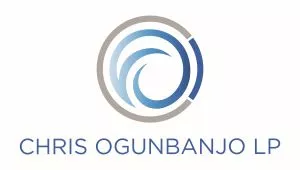This article is not about the impending mixed martial arts duel between Elon Musk and Mark Zuckerburg, but it sets the tone for the potential court battle between the two foes arising from an IP dispute.
On 5th July 2023, Mark Zuckerberg's Meta formally launched the Threads app to rival Twitter, the popular social networking application currently under the ownership of Elon Musk's X Corp. In response to Threads' launch, Alex Spiro (Elon Musk's Attorney) wrote a letter to Meta citing various concerns of Twitter bordering on alleged misappropriation of trade secrets, breach of confidential information and other intellectual property rights exclusively owned by Twitter. In the letter, Twitter alleged that it reasonably believed that certain ex-Twitter employees engaged by Meta to develop the Threads' app, had breached their confidentiality obligations and Twitter's trade secrets and it would seek civil and injunctive remedies against Meta and the ex-Twitter employees.
This article will attempt to enlighten readers on the protection of trade secrets and confidentiality obligations with regards to employment contracts under Nigerian law.
What is a Trade Secret?
A trade secret is a category of intellectual property rights that protects confidential and sensitive trade information belonging to a corporate entity or individual. Confidential information includes unique patterns, codes, designs, processes, methods, databases, techniques and programs that are developed internally by the entity or individual and gives such entity/individual some form of economic advantage over its competition in the market space. Trade secrets may take the form of economic information, scientific information, technical information or financial information.
Generally, information will only be eligible for protection as a trade secret in most jurisdictions if it meets the following requirements:
- Such information has commercial value and gives its rightful owner competitive advantage and economic benefit;
- is not known to the public; and reasonable efforts have been made by the rightful owner to ensure the protection of this information through confidentiality and non-disclosure clauses or agreements.
From the foregoing definition, it can be inferred that the major distinction between trade secrets and the other types of intellectual property such as trademarks, patents, industrial designs and copyrights is the fact that even though trade secrets are also fully protected, they are still kept relatively unknown from the public. The general understanding is that secrecy and priority of confidentiality are the hallmarks of trade secrets, and where secrecy is lost and confidentiality breached, the sanctity of trade secrets is irreparably jeopardized. This understanding appears to be the motivation behind Twitter's claim that certain confidential information and trade secrets which gives it the competitive advantage in its innovation has been divulged to Threads by ex-Twitter employees and which enabled the rival product to succeed. While this assertion is still being contended by the respective attorneys, it is needless to say that trade secrets are jealously guarded by corporate entities and protected as much as possible.
What are Confidentiality Obligations?
Confidentiality obligations are contractual obligations that require a party or parties to an agreement to keep certain information private and further mandates the non-disclosure of said information to any third parties. Confidentiality obligations are commonly found in every type of contract, including but not limited to, service agreements, employment contracts and sales & purchase contracts. Confidentiality obligations are generally enforceable in common law in Nigeria and in other general legal jurisdictions. It should be noted that there is legislation in Nigeria that pertains to confidentiality obligations such as the constitutional right to privacy1, a lawyer's confidentiality obligations to its client2 and most recently the confidentiality obligations of data controllers and processors.3
Interestingly, under Nigerian law, confidentiality obligations may continue after the expiration or termination of a contract. However, the extent of the enforceability of continuing confidentiality obligations borders on the enforceability of restrictive covenants in common law and this is usually determined on a case-by-case basis with recourse to the reasonability of the said covenant as there is generally no hard and fast rule.
Legal Regime of Trade Secrets and Confidentiality Obligations in Nigeria and Other Notable Jurisdictions
In the United States of America, the Defend Trade Secrets Act of 2016 was enacted for the protection of trade secrets as well as common law regulation of the contractual obligation of confidentiality. As such, should the Musk v. Zuckerberg debacle escalate to the Court room, it will be saddled with the judicial responsibility of considering whether trade secrets so protected under that legislation have been breached.
The United Kingdom also recently implemented Directive (EU) 2016/943 of the European Parliament within its jurisdiction through the Trade Secrets (Enforcement, etc) Regulations 2018 for the protection of trade secrets and generally provides for confidentiality obligations under common law and equity.
Across the African continent in East Africa, Uganda enacted the Trade Secrets Protection Act in 2009 which provides for the protection, licensing and transfer of trade secrets. The Ugandan trade secrets law also provides remedies such as damages, injunctions and auxiliary or incidental reliefs where necessary.
Unlike the aforementioned jurisdictions, Nigeria currently has no legislation specifically for the protection of trade secrets and confidentiality obligations. Trade secrets are generally protected in Nigeria by the inclusion of confidentiality and non-disclosure obligations in contracts which allows for the enforceability of trade secrets and confidentiality obligations in common law. As mentioned earlier, the standards for enforcing continuing confidentiality obligations of a terminated employment contract (restrictive covenant), especially in respect of trade secrets will depend on the reasonability of the said confidentiality obligation as interpreted and determined by the courts.
Conclusion
While common law principles have often been applied by the Nigerian courts in the adjudication of disputes relating to trade secrets and confidentiality obligations, we would canvas for the enactment of specific legislation to end the court's reliance on common law. This approach will help to expand the scope of Nigeria's nascent intellectual property legislation.
With the advancement and widespread application of technology in practically all sectors of the economy, a purposive amendment of the Labour Act, Nigeria's primary employment legislation is also highly recommended to allow for the protection of employment contract information and other employment related information. The enactment of trade secret legislation is also recommended to ensure the protection of trade secrets similar to other intellectual property laws in force in Nigeria.4
Footnotes
1. Constitution of the Federal Republic of Nigeria 1999 (as amended), s. 37
2. Rules of Professional Conduct 2023, r. 19
3. Nigeria Data Protection Act 2023
4. Trade Marks Act, Copyright Act 2022 and Patents & Designs Act
The content of this article is intended to provide a general guide to the subject matter. Specialist advice should be sought about your specific circumstances.


